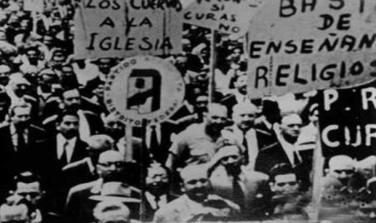Framed within the project 'Europe, past future' by Pablo La Parra, Tabakalera hosts six sessions of screenings exploring the transfers between the archive of militant cinema of the Long 1960s and contemporary film and art practice.

La hora de los hornos. Grupo Cine Liberación
It is not all clear to me that the past actually gives lessons.
Like Walter Benjamin, though, I believe that there are moments
when a particular event or struggle enters vividly into the figurability of the present
Kristin Ross
An image haunted Europe in the 1960s and 1970s—the image of militant cinema. It was a form of cinema that lent its backing to the radical movements shaking the continent—and the whole world—from the national liberation struggles of the Global South to the paving stones and barricades that made the great western metropolises tremble; from workers occupying factories to women fighting because ‘the personal is political’. During 2016, Tabakalera will host six sessions of screenings exploring the transfers between the archive of militant cinema of the Long 1960s and contemporary film and art practice. What happens when we watch a film from that time? How does the image of the pastenter vividly into the figurability of our present? How do contemporary visual creators dialogue with the legacy, strategies, dreams, and failures of militant cinema?
The programme for the screenings will be developed throughout the year around different topics, defined by progress of the research carried out as part of Europe, future past. Each session will include guest presenters who will discuss the materials programmed, opening a critical conversation.
